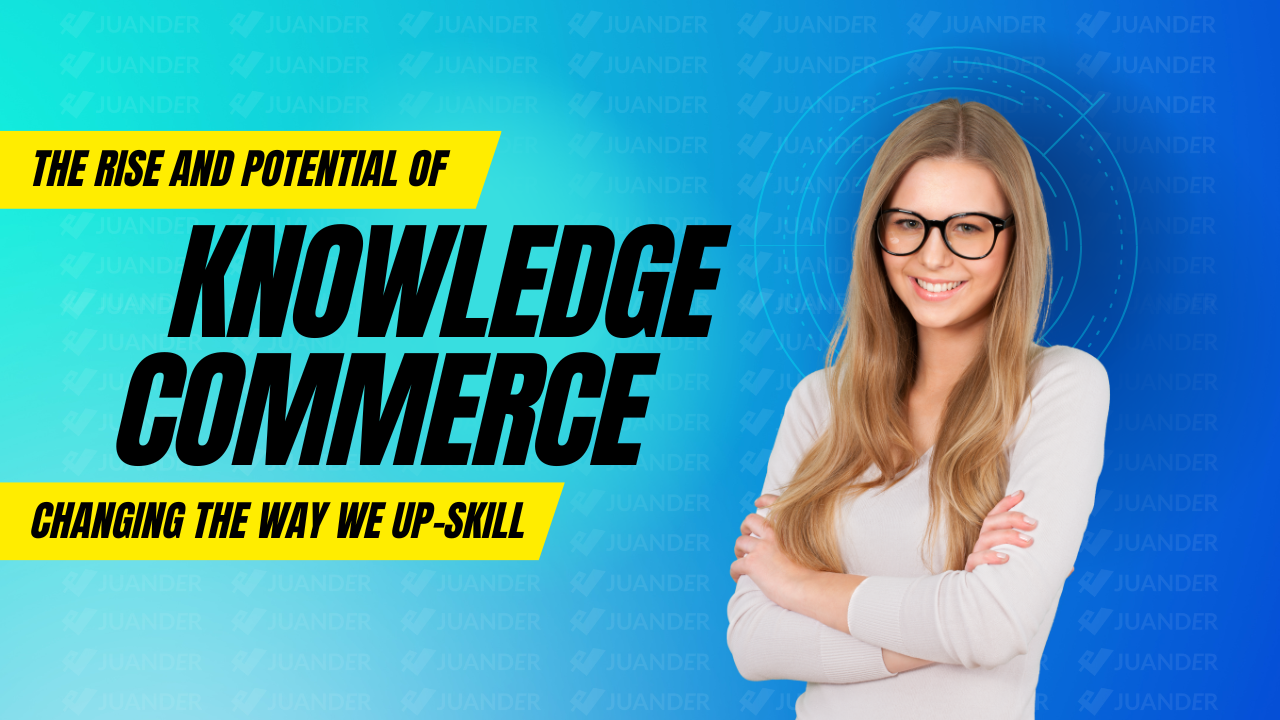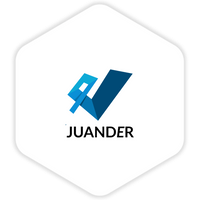
- Admin
- July 7, 2023
- Knowledge Commerce
How knowledge commerce is changing the way we up-skill
Knowledge commerce has the potential to democratize access to information and education, provide greater flexibility and convenience, and create new opportunities for individuals to learn and grow.
Here are some key takeaways about knowledge commerce
Definition: Knowledge commerce refers to the buying and selling of information and education online, including online courses, coaching and consulting services, e-books, and other information products.
Growth: The knowledge commerce industry is rapidly growing, driven by factors such as the increasing demand for flexible and accessible education, as well as advancements in technology.
Monetization: Knowledge commerce provides opportunities for individuals to monetize their expertise and knowledge by offering online courses, coaching, and consulting services.
Convenience: Knowledge commerce allows individuals to access information and education from anywhere, at any time, and at their own pace, providing greater flexibility and convenience compared to traditional forms of learning.
Personalized learning: The ability to choose from a wide range of online courses and resources enables individuals to tailor their learning experience to their specific needs and interests.
Lower costs: Online learning can often be more cost-effective than traditional forms of education, as it eliminates the need for physical infrastructure and reduces other costs associated with traditional schools and universities.
Global reach: Knowledge commerce has the potential to reach a global audience, providing access to information and education to individuals in regions where traditional forms of learning may not be readily available.
Overall, knowledge commerce represents a new and rapidly growing industry that is changing the way individuals access and acquire information and education.
Continue reading below if this sparks your interest. Visit www.juander.xyz if you want to start your own knowledge commerce site.
What is knowledge commerce
Knowledge commerce refers to the buying and selling of information and education online. This can include a wide range of activities, such as online courses, coaching and consulting services, e-books, and other information products. The purpose of knowledge commerce is to provide individuals with access to information and education that can help them learn new skills, improve their careers, or simply satisfy their personal interests.
In knowledge commerce, experts and professionals can monetize their knowledge and skills by creating and selling online courses, coaching programs, and other information products. At the same time, individuals can access this information and education without having to physically attend a traditional school or university. The rise of technology and the internet has made it easier than ever before for individuals to access and share information, and has paved the way for the growth of the knowledge commerce industry.
How big is the knowledge commerce industry
The size of the knowledge commerce industry is difficult to quantify as it encompasses a wide range of activities and sectors, including online education, professional development, coaching and consulting, and information products such as e-books and courses. However, it is a rapidly growing industry, with some reports estimating that the global online education market alone is expected to reach over $350 billion by 2025. The growth of this industry is being driven by factors such as the increasing demand for flexible and accessible learning opportunities, as well as the rise of technology and the internet, which has made it easier for individuals to access information and connect with experts from around the world.
History of knowledge commerce
The history of knowledge commerce can be traced back to the early days of the internet, when the first online courses and e-books were made available. However, the industry has evolved significantly since then and has grown into a multi-billion dollar market.
In the late 1990s and early 2000s, the rise of e-commerce and the increasing availability of broadband internet paved the way for the growth of online learning and information products. At this time, a number of companies, such as Coursera and Udemy, began to offer online courses and educational resources to individuals around the world.
In the years that followed, the popularity of online learning continued to grow, driven by factors such as the increasing demand for flexible and accessible education, as well as advancements in technology, such as mobile devices and cloud computing, which made it easier for individuals to access and participate in online courses.
More recently, the COVID-19 pandemic has accelerated the growth of the knowledge commerce industry, as the shift towards remote work and online learning has created a greater demand for online courses and information products.
The history of knowledge commerce reflects the ongoing evolution of technology and the internet, and the increasing demand for flexible and accessible education and information.
Future of knowledge commerce
The future of knowledge commerce is expected to be driven by the increasing demand for personalized and easily accessible information and education. This will likely result in the growth of online marketplaces and platforms that connect experts with individuals seeking their knowledge and skills. Advancements in technology, such as artificial intelligence and virtual reality, may also play a significant role in shaping the future of knowledge commerce by providing new and innovative ways for people to learn and acquire information. Additionally, the trend towards remote work and online collaboration may further fuel the growth of this industry.
Advantages of knowledge commerce
There are several advantages of knowledge commerce, some of which are:
Convenience and accessibility: Knowledge commerce allows individuals to access information and education from anywhere, at any time, and at their own pace. This provides greater flexibility and convenience compared to traditional forms of learning.
Personalized learning: The ability to choose from a wide range of online courses and resources enables individuals to tailor their learning experience to their specific needs and interests.
Lower costs: Online learning can often be more cost-effective than traditional forms of education, as it eliminates the need for physical infrastructure and reduces other costs associated with traditional schools and universities.
Wider reach: Knowledge commerce has the potential to reach a global audience, providing access to information and education to individuals in regions where traditional forms of learning may not be readily available.
Ability to monetize expertise: Knowledge commerce provides opportunities for individuals to monetize their expertise and knowledge by offering online courses, coaching, and consulting services.
Flexibility in career development: Knowledge commerce allows individuals to continuously up-skill and develop their careers, even while working full-time.
Knowledge commerce has the potential to democratize access to information and education, provide greater flexibility and convenience, and create new opportunities for individuals to learn and grow.

